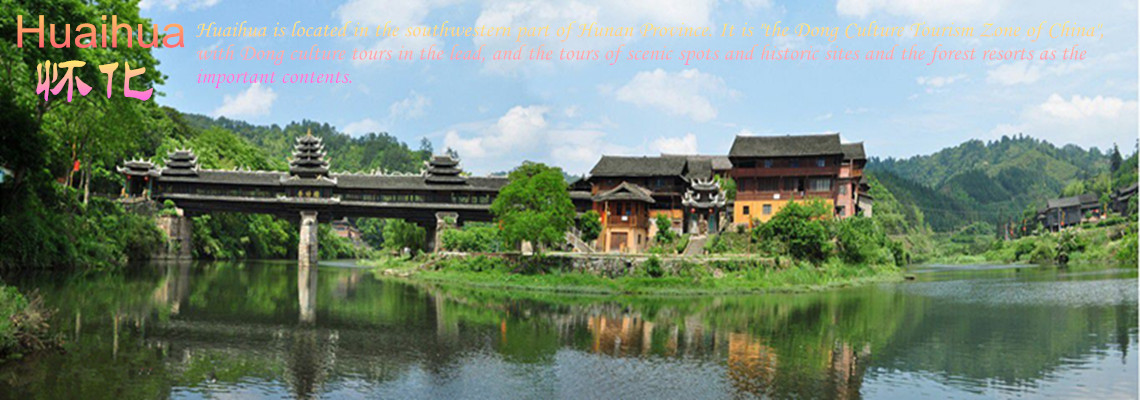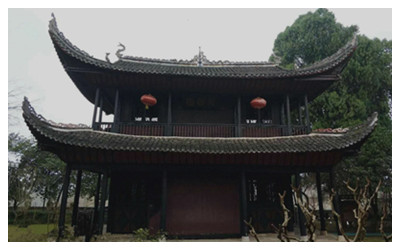
Slab-Paved Street and Hibiscus Tower
 Hibiscus Tower is at the confluence of the Yuanjiang and Wushui rivers in Qiancheng Town. This was where the famous Tang-dynasty (618-907) poet, Wang Changling, held banquets for his guests and farewell parties for his friends, and has, over the past dynasties, been the ideal setting for scholars to compose poems and artists to create masterpieces.
Hibiscus Tower is at the confluence of the Yuanjiang and Wushui rivers in Qiancheng Town. This was where the famous Tang-dynasty (618-907) poet, Wang Changling, held banquets for his guests and farewell parties for his friends, and has, over the past dynasties, been the ideal setting for scholars to compose poems and artists to create masterpieces.
The tower now standing was constructed during the reign of Emperor Daoguang in the Qing Dynasty (1644-1911) on the original site of Hibiscus Tower, which was razed during a period of war. The tower is a marvelous example of architectural complexity that combines the typical Qing-dynasty architectural design with the style popular in Hunan and Anhui provinces. As we walked up the steps leading to the top of the tower, we marveled at the unique gate that tilts forward, as if to welcome the arrival of visitors, hence, the name, Guest Greeting Gate. It is said that the gradient of this gate surpasses that of the Leaning Tower of Pisa. The four Chinese characters, Longbiao (Mark of the Dragon) Shengji (Historic Site) above the gate command scrutiny, and the mural, depicting Wang Changling's Farewell Party for Guests, originates from local famous artists of the Qing Dynasty. In the garden, in the midst of other rare trees, stands an ancient pine, 30 meters tall, and with 2.8 meters circumference at its base. Its branches extend to cover an area of 25 square meters.
It was noontime when we arrived at Qiancheng Town, famous for its Hibiscus Tower, and a slab-paved street. The street was remarkably peaceful, as if all the normal city noise had been absorbed by its thick paving slabs. On either sides of the street are wooden houses, and it is commonplace for families to put tables in front of their houses to sell home-made snacks, pickles and some daily-use articles. In one small barber's shop, a haircut can be had for a mere two yuan, although the haircutting tools used here are no longer seen in big city barber's shops. On the inner walls of the houses hang portraits of Chairman Mao Zedong, among the family pictures. This reminded me of the days in the 1970s, when almost all families had a portrait of Chairman Mao Zedong on their wall. Local people here seem to seek neither fame nor personal gain, being happy to live a carefree life. I came across a group of elderly ladies, sitting in their courtyard, relaxing with a look of supreme contentment. Huaihua has, therefore, also been cited as the seat of longevity.



 Ask Questions ?
Ask Questions ?